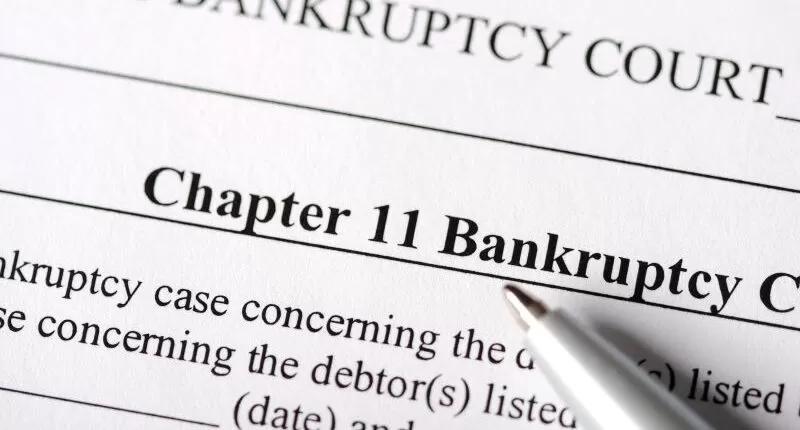What Are the Alternatives to Bankruptcy?
There are several alternatives to bankruptcy that you may want to consider before plunging into the deep end.
Read on to learn about them.
Introduction
Bankruptcy is one of those things nobody wants to talk about, let alone go through. But when it comes to getting relief from significant debt, bankruptcy tends to be the first thing that comes to mind. While this may be a practical option, it is essential to know that it is not the only option.
Negotiate With Your Creditors
Before taking a step toward any of the next alternatives to bankruptcy, you may want to talk to your creditors. You may be surprised by how much they are willing to work with you on tackling your debt.
If you are willing to give them a call and try to negotiate payments, they may offer you affordable payment arrangements or knock some off the balance if you can pay in full.
Borrow Money
Borrowing money from friends or family may be a way to get yourself out of a tight situation – and allow you to make affordable payments back to those you care about. While not always an option, this is an alternative to bankruptcy to consider, just in case.
If you can negotiate with your creditors – or even if you aren’t – reaching out to someone who may be able to help can be very beneficial. Sit down and figure out how much you owe and need to borrow. Be sure to put your agreement in writing, stating the amount you borrowed and the details of your agreement to pay it back. Then, stick to it. Don’t allow money to ruin your relationships because it can.
Debt Consolidation
Debt consolidation involves taking out a loan to pay off your outstanding debt. Then you are left with one payment each month – instead of multiple charges, each accruing interest.
You should note that you will need a decent credit score to get a loan. And you need to make sure you have enough money to pay it back. Not everyone is a good candidate for this alternative.
Debt Settlement
Many debt settlement companies will help you compromise with your creditors to pay less. Sometimes a lot less than what you owe. The rest of the amount you owe will be forgiven by the creditor.
Most creditors will agree to work with debt settlement services. After all, if they don’t work with you, they risk not getting paid, especially if you are on the verge of filing for bankruptcy.
Consider the following:
- You have to be in default for debt settlement to work. As long as you make minimum payments, they will likely not forgive any portion of the debt.
- Discuss how these settlements work with the professionals before fully taking the step.
- Not all debt settlement companies are the same so be sure to research before you decide on the right one. And never choose a company that requires you to pay a fee before negotiating your debts.
Credit Counseling
Credit counseling helps you to address your debt in a way you can afford. This involves having a credit expert comb through your income and expenses to help you develop a debt management plan to help you address this outstanding debt with payments you can afford. Debt counselors can also work with creditors to help lower costs and interest rates.
Federal bankruptcy courts will require you to attend credit counseling before you can file for bankruptcy anyways, so it is worth giving it a shot as an alternative.
Consult an Attorney
Attorneys can often be a beacon of hope for those struggling with a large debt. They can reach out to creditors and negotiate settlements. Due to their status, attorneys can have a greater success rate at getting creditors to agree to compromise.
Should the negotiations not work, an attorney can walk you through bankruptcy and answer any questions you may have along the way. Of course, should you have any questions or concerns about other alternatives, they can help with that, too.
Alternatives to Bankruptcy You Should Avoid
Facing mounting debt can easily make you want to crawl into a hole and forget about it. Unfortunately, turning a blind eye to it is not the way to go. Creditors want to get paid and will usually take any step necessary to do so. Filing a civil court case against you is not out of the question.
They intend you to pay the debt in full, in a settlement agreement, or via stipulated payments. If you cannot do this or don’t show up for your hearing, a judgment will be entered against you.
Judgments in California last for ten years from the date they are entered – and they can be renewed, collecting interest for the life of it. This allows creditors to garnish wages and bank accounts, levy your vehicle, and more. You may be obligated to pay off the judgment if you try to buy or sell a piece of property.
In other words, don’t just ignore your debt; instead, opt for one of the above alternatives to bankruptcy.
Wrapping Up
Bankruptcy has brought relief to many people who feel as though they are suffocating from the debt that they owe. And while it can be beneficial, it isn’t always what debtors want to do. Nor is it always the best option.
Seeking alternatives to eliminate debt can be a good move to curing financial woes. And borrowing money, negotiating with creditors, debt settlement, debt consolidation, credit counseling, hiring a bankruptcy attorney, and more can all help make it happen.
Are you in search for a certified attorney to represent you?
Let us help you find one today!


